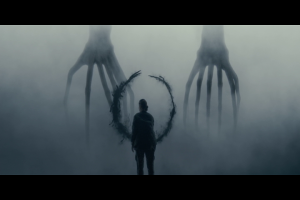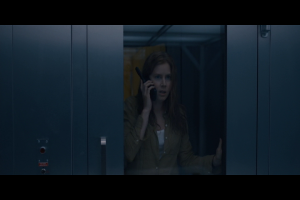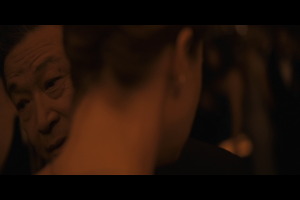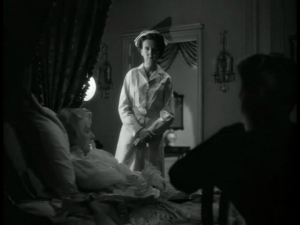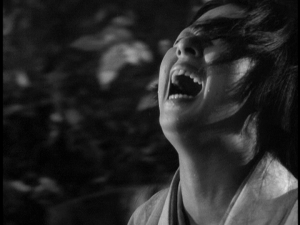A woman can throw her voice and ask for what she wants, but her body will betray her.
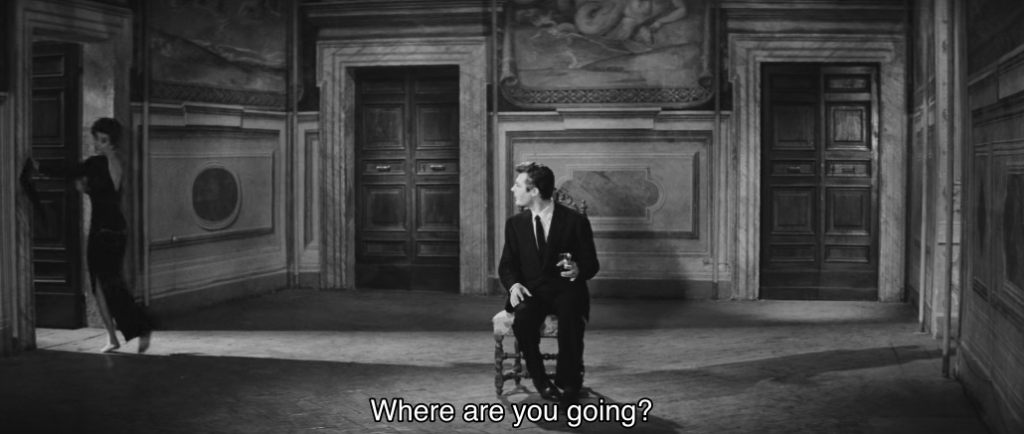
In La Dolce Vita (1960, Fellini), two casual lovers encounter each other at a party in a castle. Maddalena leads Marcello to a room “for serious talks,” and leaves him there, alone. She walks to another hall and whispers into a spittoon, which carries her voice, loudly, into the room where she’s left Marcello.
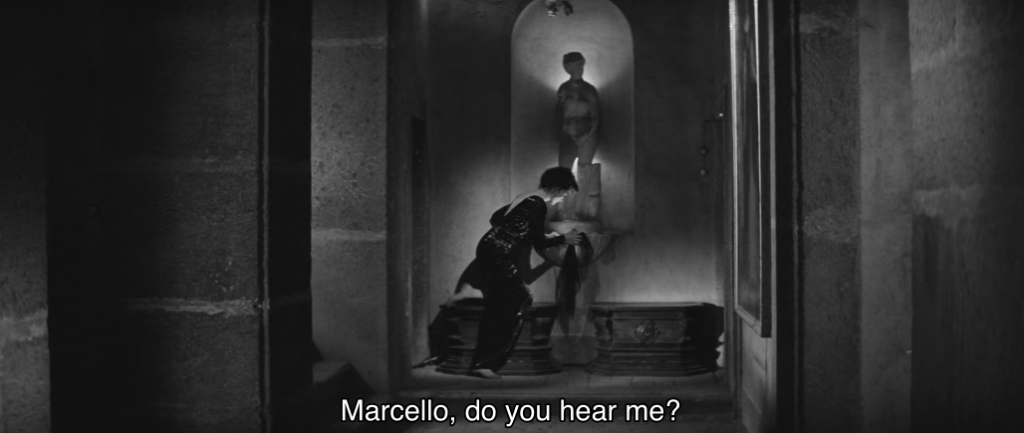
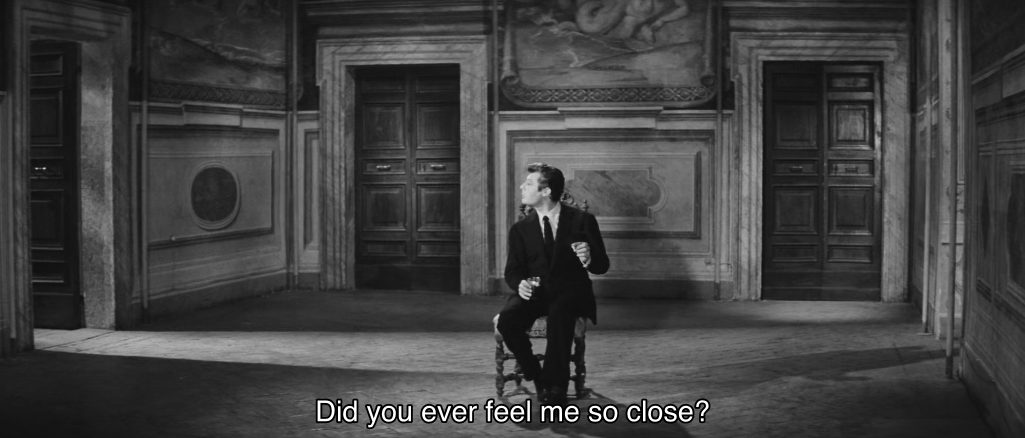
Her voice surrounds him, envelopes him. From this remove, Maddalena’s voice can propose marriage, confess love, and admit to her inner conflicts.
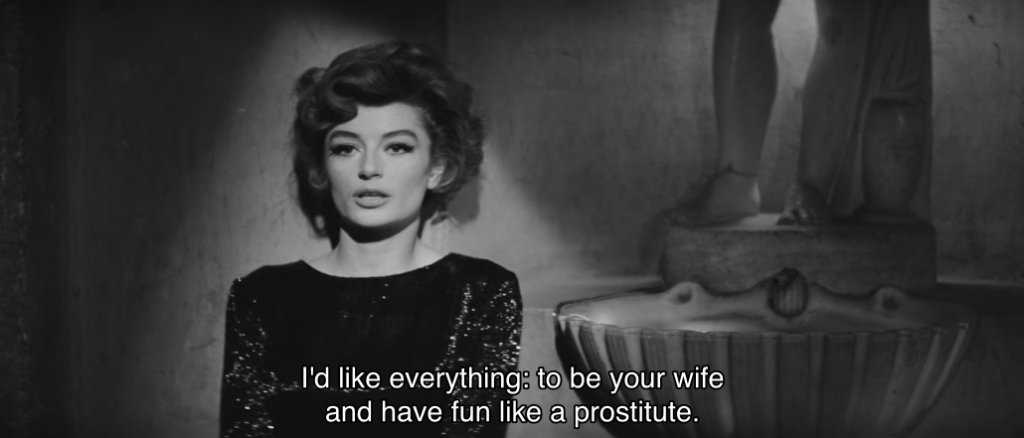
Her voice tells Marcello that he would come to hate her because it’s too late for her to choose anything other than being a whore, but his voice, reaching her through the spittoon, objects.
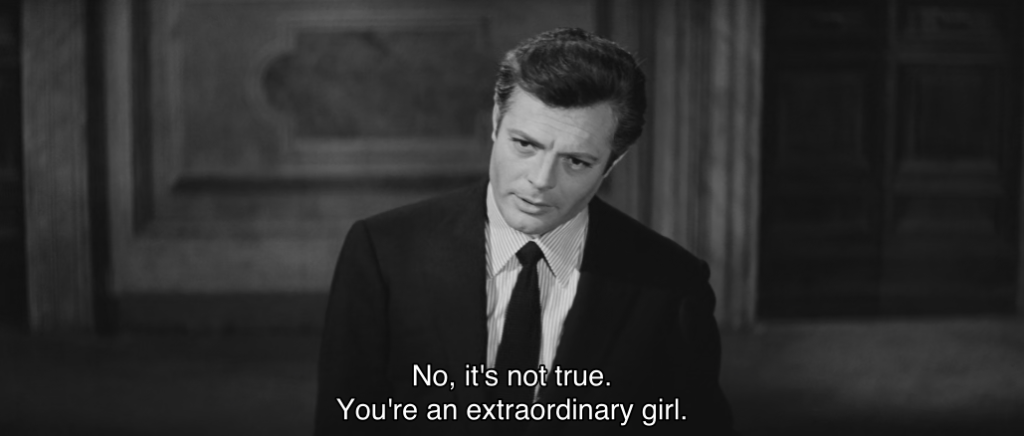
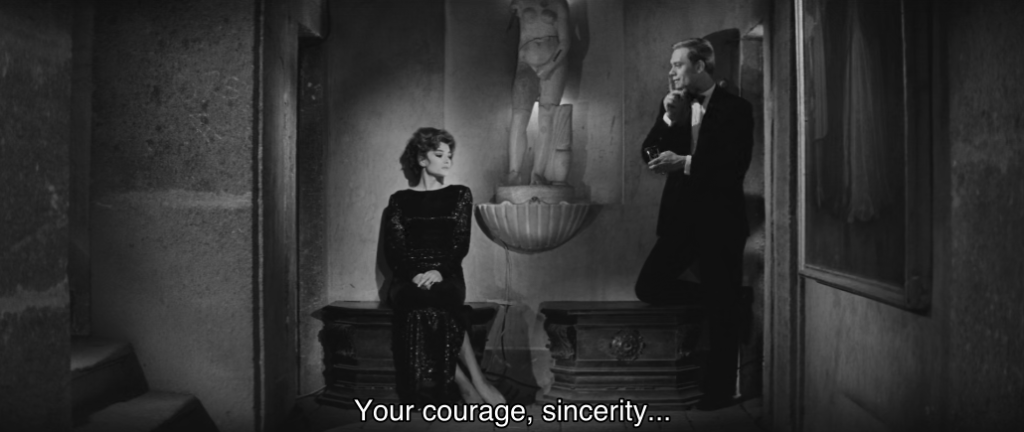
Marcello’s voice speaks of her virtues, but Maddalena’s physical space has admitted an intruder.
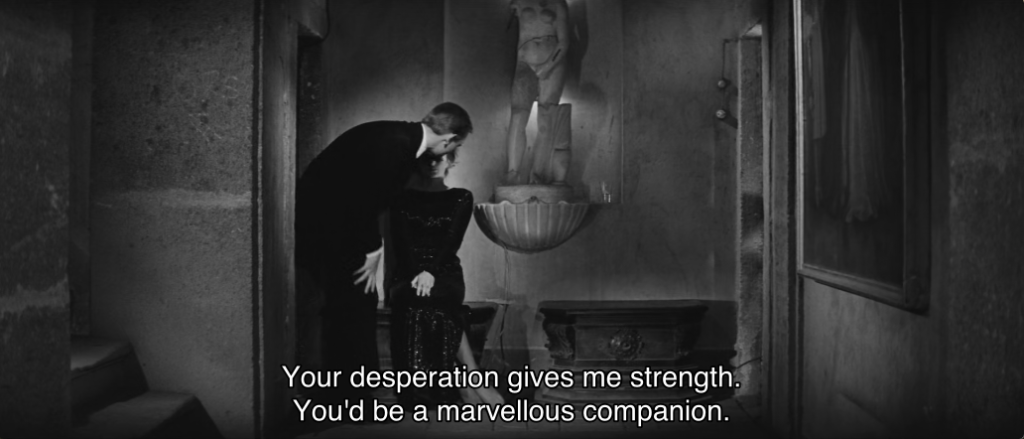
As Marcello speaks the shadow of another man’s body looms over Maddalena, who barely moves.
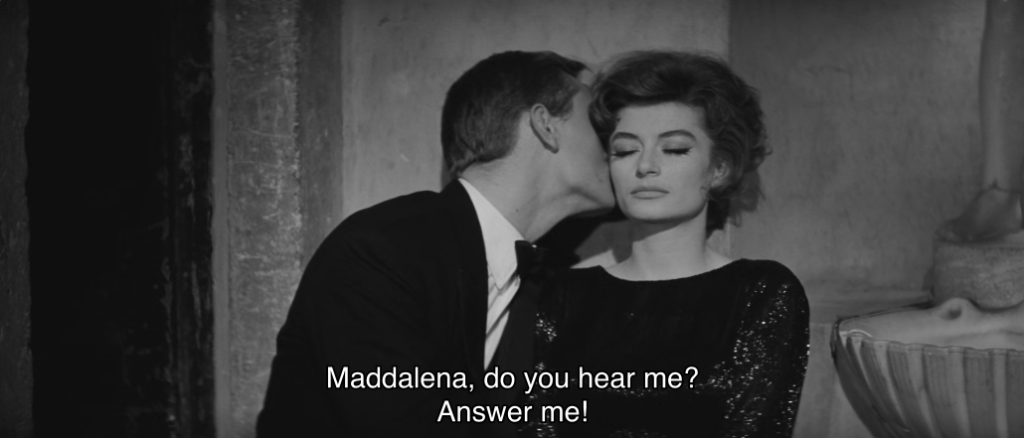
Her body is no longer able to produce a voice.
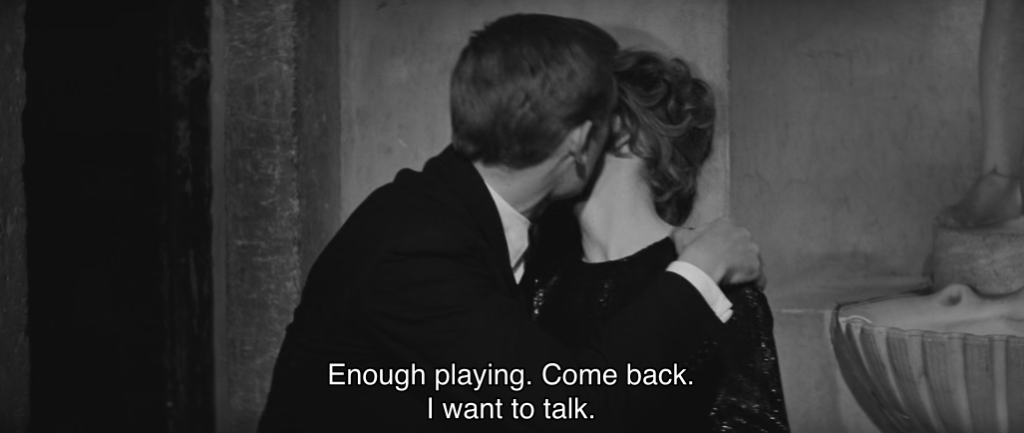
She can hear Marcello, but her body is being played and it succumbs to her own certainty that she is a “hopeless” prostitute. Her voice was honest, but disconnected. And so she remains.
Marcello and Maddalena could emotionally express themselves, but only because of their physical disconnection. The scene dissolves into tragedy as Marcello leaves the room to find Maddalena, but gets swept along by other party-goers who are parading through the castle. Marcello is distraught that he can’t find Maddalena, he can’t find the source of the Echo. At that moment he is not like Narcissus, who rejected Echo and sought only his own reflection. At that moment Marcello seeks to redeem the Echo of Maddalena, who has separated and banished herself. What if her echo could respond to Marcello’s praise and desire?

